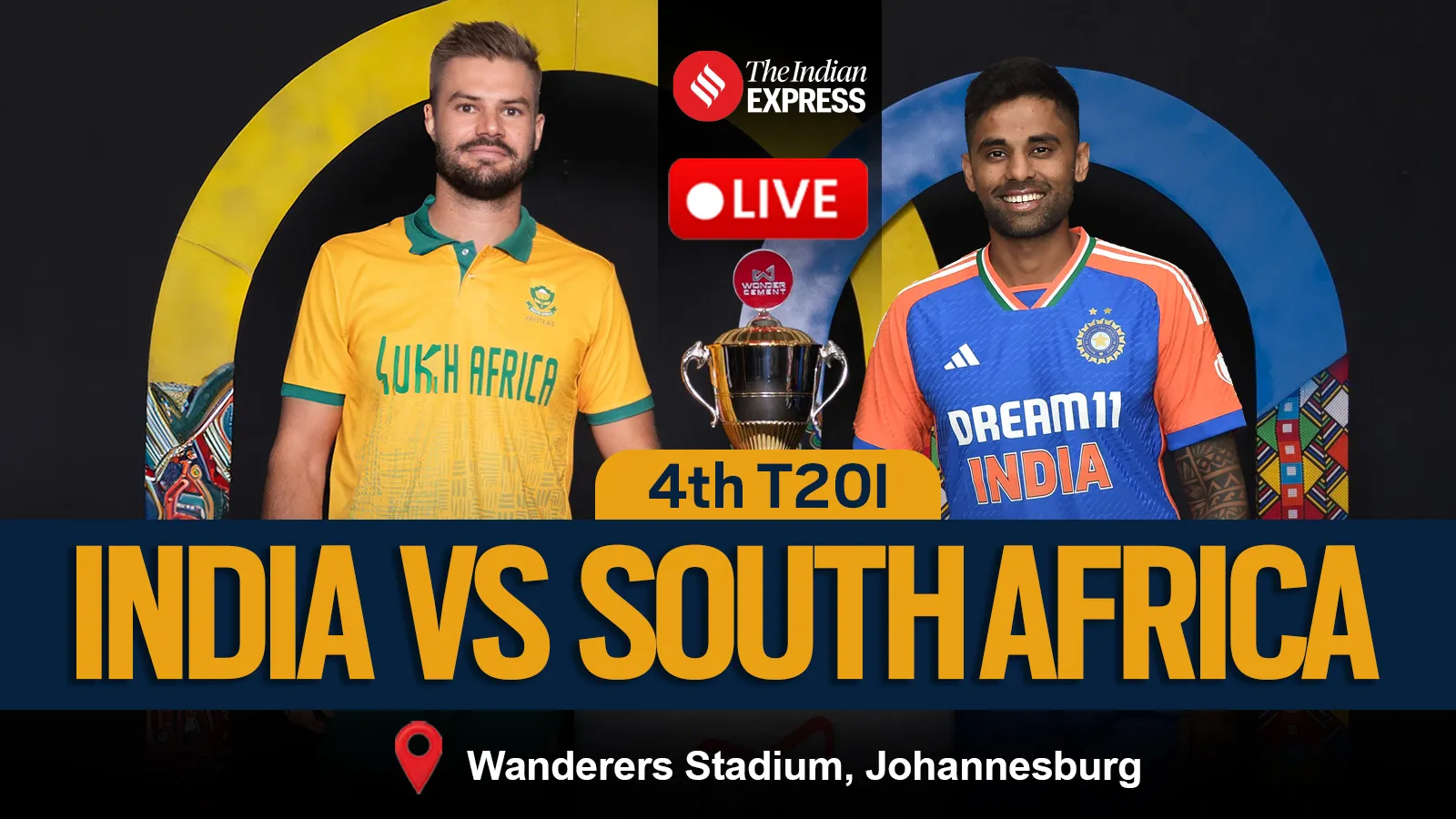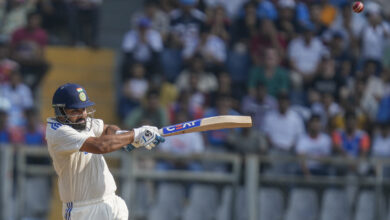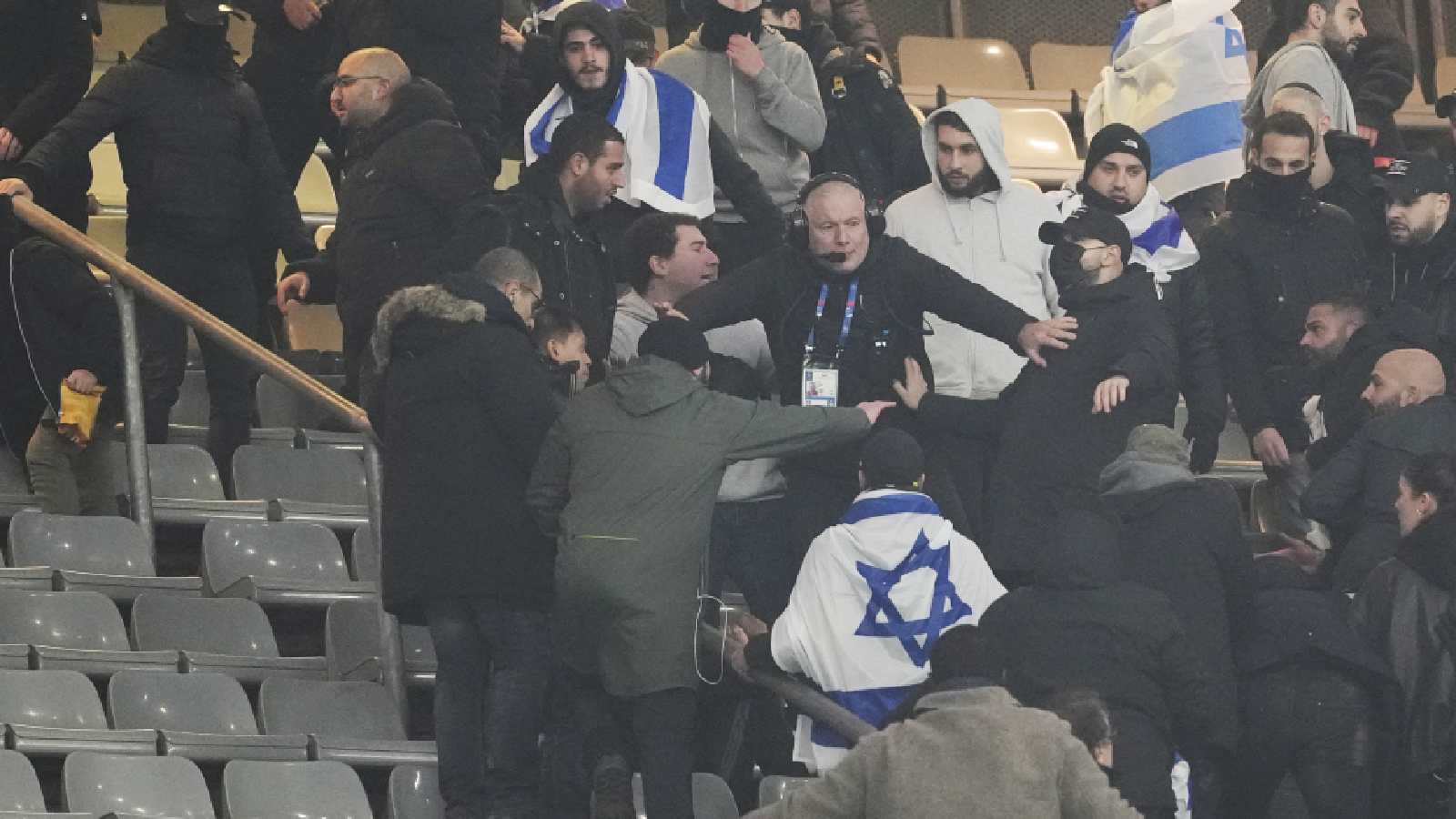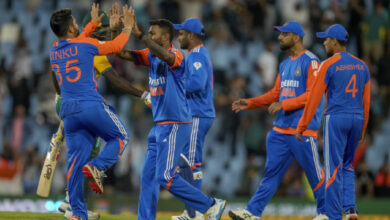Magnus Carlsen exclusive: Gukesh is calculation-based, Pragg is more intuitive, Arjun is complete mad man… wants to kill you in every single game | Chess News

Former five-time World Champion Magnus Carlsen found himself in uncharted territory recently. The man who was earmarked for chess greatness before he was even a teenager was recently competing at an event in Poland where he was the oldest player in the event. On top of that, the 10-man field had three Indians. Both those things were a sign of things to come in the sport, but Carlsen thinks it is “refreshing”.Ahead of the Norway Chess tournament in his home country, the five-time world champion sat down with The Indian Express in an exclusive interview where he spoke about why he’s happy about India’s chess revolution; what’s the common thread between Indian GMs like Viswanathan Anand and new-gen stars like D Gukesh and R Praggnanandhaa; weighed in on Elon Musk’s comment that chess could be fully solved in 10 years and a lot more. Excerpts
At Norway Chess, some of the biggest stars are coming to your home turf to play against you. What are you looking forward to?
Magnus Carlsen: I’m looking ahead to fighting against the best players in the world. I did play quite a bit of Classical chess last year. But not a lot of it was against only the very top players. So that was something that’s quite exciting for me. I probably don’t do that as often as I did in the past. But that is also what makes the events that I do play special. I’m also curious to see what my level is because at the moment, I don’t really know.
We recently saw you competing at the Casablanca Chess event. Before that you were at the Freestyle G.O.A.T Chess event. What do you find appealing about these events?
Magnus Carlsen: I found the Casablanca event interesting for sure. I definitely enjoyed the Freestyle Chess event that we had in February even more because it was held in a Classical time control and I think that when you’re playing positions that are unfamiliar to the players from the start, it’s good to have a bit of extra time. I enjoyed that event for sure and I think it’s quite useful.
Do you see these events as the future of chess and maybe something that will interest you a lot more than traditional chess going forward?
Magnus Carlsen: I generally feel that faster chess is a huge part of the future. But I also hope that variants can be something that you can play at longer time controls.
Magnus Carlsen FIDE World Cup win (Photo Stev Bonhage)
Elon Musk recently said that chess is close to being fully solved in 10 years. Do you agree with that?
Magnus Carlsen: I’m not a mathematician. I have no idea. From what I have heard we now have seven-pieces databases and you would need 32 pieces for it to be solved fully. For chess to be solved in 10 years, it could only be in a few specific variations. I’m sure that chess is solved in the sense that the correct result is a draw. There is very little doubt about that. But apart from that, I don’t really know. I think chess is so complicated that it’s viability will certainly continue for a long time.
At the SuperBet Rapid and Blitz tournament, you were the oldest player in the field. And out of 10 players, there were three Indians. Do you see that as a sign of things to come?
Magnus Carlsen: I found it very refreshing to be the oldest player. I have been the second oldest player at tournaments before — maybe even the oldest one. I know this is the future. I hope I will be (the oldest player in future events), because that will mean that I have continued to be good for a long time. As for the Indians, it’s happened for years now that I expect to face Indians in every super tournament there is. If you see at the youth levels, Indians are absolutely dominating. Also in terms of sheer numbers of youth players, there is no match. I’m thoroughly impressed the chess revolution that has happened in India. All the kids that I am facing are great kids as well. I’m really happy for Indian chess and I will try and fight the kids as long as I can (smiles).
In your career you’ve fought multiple generations of Indians, from Viswanathan Anand to Vidit (Gujrathi) to now the teenagers like Gukesh and Praggnanandhaa. Are there similarities between these different generations of Indian players or even something that’s different?
Magnus Carlsen: I feel like most of the Indian players have been taught in the same way in the sense that most players have supreme calculation skills. First look at Anand, who has incredible knowledge about the game. But the first thing you noticed about him and the first thing you noticed about Gukesh in particular besides the other kids is (that they’re calculation based). The other kids who are coached RB Ramesh are also very calculation-based. I’m not sure if other coaches in India are so calculation based, but I think that’s a key characteric that combines the generations of Indian players that I have played. What I do know is that the current generation of Indians is certainly the strongest and most dangerous. I mean this generation as a whole.
Magnus Carlsen file image from Anastasia Korolkova.
Do you mean that only as a generation to come out of India, or any generation to come from anywhere in the world?
Magnus Carlsen: I mean only in India. Even though the current crop of players — I guess a lot of them are Indians — but the players born from 2003 and 2006 are certainly the strongest generation of players we have had since the 90s kids, which I obviously maintain is the strongest of all time (smiles).
At the recent Candidates, did you find yourself rooting for others like Fabiano Caruana or Ian Nepomniachtchi because they’re from the same generation as you?
Magnus Carlsen: Not necessarily. I have been competing for so many years with these guys that even though I have the generation thing in common there, they’re all rivals so I rarely wish them anything extra even though I’m on decently good terms with all of them.
How different is it to face a Gukesh as compared to a Pragg?
Magnus Carlsen: They’re a little bit different. Gukesh is a very calculation-based player. Pragg also calculates well but he’s a little more intuitive. He’s more of a sort of player, in the sense that he’s more of a gamer. Arjun is just a complete mad man at the board. He wants to kill you in every single game. Has crazy preparation and plays extremely ambitiously and that’s what makes him very dangerous.
Is there one player between these three that you love playing against or hate playing against?
Magnus Carlsen: I’ve had a lot of great duels against Pragg already. I really enjoyed that. I like playing against the kids in general.
In the Global Chess League, all of you guys were on the same team. What was the equation like since Gukesh, Pragg and Arjun were in your team. Were they asking you for advice or trying to pick your brain?
Magnus Carlsen: We were talking in the team like equals. We would be discussing chess, playing a few training games. Generally it was quite enjoyable.
Magnus Carlsen, Garry Kasparov and D Gukesh (Lennart Ootes)
Now that Gukesh is heading into the World Chess Championship, what is the one thing that you think he should know about competing in that showpiece event?
Magnus Carlsen: The one make I made competing against Anand (in 2013) is that I was a little bit intimidated. I had this impression that players playing in the World Chess Championship elevate their game to a level that they haven’t been at before. My experience from playing at five World Championship matches is that yes players do have better preparation but when people come under pressure they make the same makes as they generally make (in other events). That would be my best advice: Don’t be intimidated and don’t build your opponent up in your mind into something that he’s not.
When you were coming up as a kid, you used to love reading a lot of chess books. Do you see that the current generation is maybe not too much into reading books to learn about the sport?
Magnus Carlsen: I kinda used the tools that I had in my younger days. I see that the younger generation may not read as much but I also see that they’re always doing something chess-related. And that’s the most important thing.
There’s this viral clip of you from your younger days, when you faced Garry Kasparov before you were a Grandmaster. Around the same time, you also played a game against Anatoly Karpov. At that stage of your career, were you intimidated at all when playing them? Or has intimidation never been a factor for you at all?
Magnus Carlsen: I was massively intimidated while playing Kasparov at the age of 13. You can see that from the fact that in the game which I eventually drew with Kasparov, I spent oceans of time checking and double checking lines that I could have played a lot quicker. If I had done that I could have won the game instead of drawing it. They say your appetite grows with the more you eat. That definitely happened for me: the stronger I got, the more ambitious I got as well. Those days I had a lot of respect for older and stronger players… I sometimes accepted draws when I was in a better position and so on. But I learnt to be more confident with age and experience.
Have you seen the Queen’s Gambit? What was your impression of the actual chess that was happening? Or were you too captivated the drama?
Magnus Carlsen: The series and the drama were quite enjoyable. But I am a chess player, so I was just as focussed at the chess scenes. There were a lot of chess fragments that were unfamiliar to me and it was quite interesting as well. I know that Garry Kasparov was involved with that. I spoke to him later and he was quite happy with some of the positions that he had picked out there. They did an excellent job on that one. I enjoyed the series very much both as a chess player and a non-chess player.







